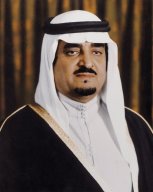|
|
 |
|
The Kingdom's Oil Policy (9 of 11)
|
|
In passing, it is perhaps worth adding that the “free market” philosophy, espoused by some of the non-OPEC oil producers in the 1980s and 1990s, is self-evidently inappropriate in the context of a resource such as oil. The oil market cannot be free of governmental decisions which are politically motivated and have little or nothing to do with market mechanisms. For example, as we have seen, the level of tax imposed by governments on oil companies is no less a determining factor of the price of oil than is the decision of a producer to increase or decrease production. Both can be “external” factors which dramatically affect the “supply and demand” equation. The notion that it is possible for government policy to have no bearing on the decisions of oil companies or on the oil market is either naive or disingenuous. The decision of a government with substantial oil export revenues not to cooperate with OPEC may well be politically astute, but it has little to do with laissez-faire economics. More importantly, management of the oil market raises global considerations, stretching decades ahead, which the “free market” approach simply does not accommodate but which governments, with a responsibility for the well-being of future generations, must assuredly address.
|
|
|
|
|
 |
 |
 |
| Related Items |

King Fahd bin Abdul Aziz
|
|
|
|
|
|
|
 |

